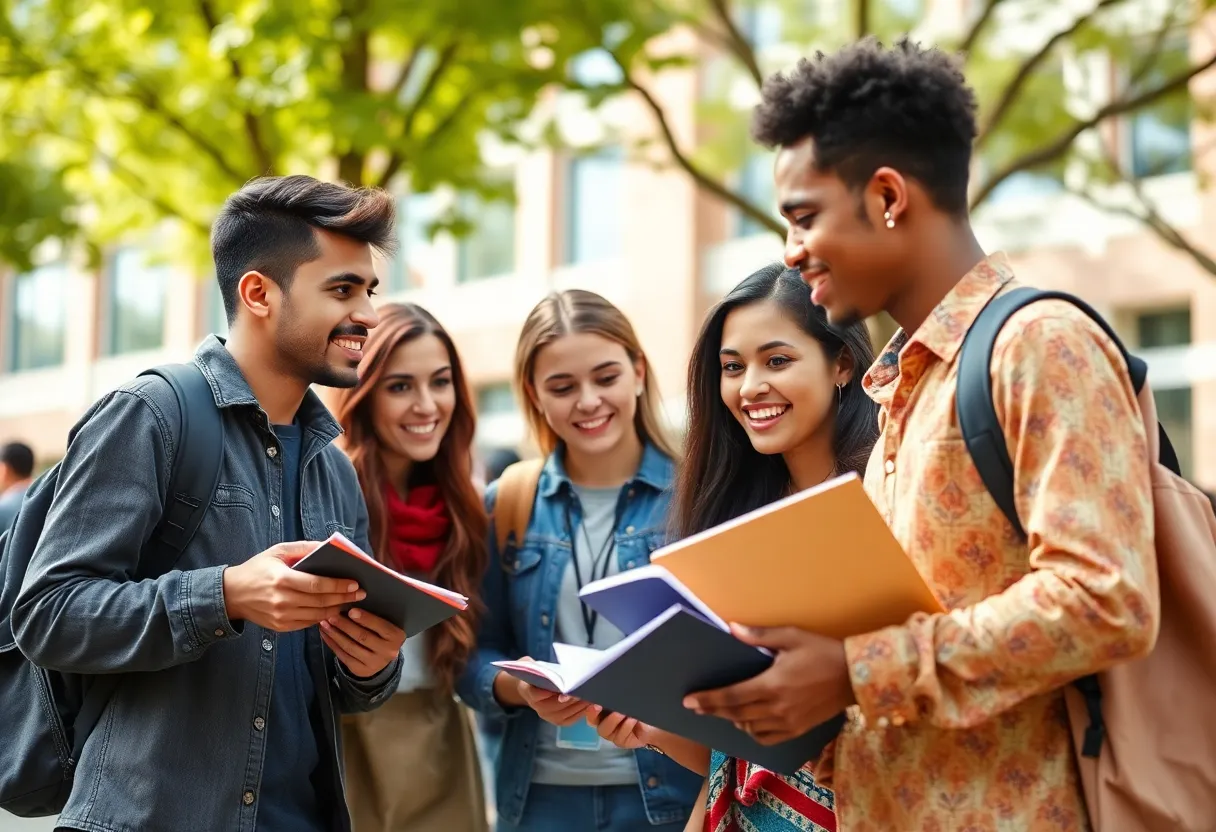News Summary
President Donald Trump has reassured Chinese students holding visas that they can feel safe as they pursue their studies in the US. This statement comes amid rising scrutiny and visa rejections for these students, creating a climate of uncertainty. Many, like Xiao Chen, have experienced distressing visa rejections, which add to feelings of helplessness in their educational pursuits. With around 280,000 Chinese students in the US, the evolving visa landscape has raised concerns over targeting policies, complicating the path to higher education.
Trump Aims to Calm Concerns Among Chinese Students Over Visa Challenges
In a recent statement, President Donald Trump expressed his hope that Chinese students holding visas can feel reassured that “everything will be fine” as they navigate their studies in the United States. This reassurance comes amidst increasing scrutiny and rejection of visa applications for Chinese students, causing waves of uncertainty and anxiety.
A Student’s Heartfelt Rejection
Take the case of Xiao Chen, a 22-year-old from China who recently found herself in a distressing situation. With an acceptance letter in hand, she was eager to begin her studies at a college in Michigan. However, her dreams took a hit when her visa application was rejected at the US Consulate in Shanghai. The rejection left her feeling both helpless and uncertain about her future. Such experiences are not isolated; they resonate with many others in similar spots, making the visa process feel more like a lottery than a straightforward path to education.
The Broader Landscape for Chinese Students
Currently, there are approximately 280,000 Chinese students in the US, many of whom may feel targeted by the recent policies. The US government has announced a plan to aggressively revoke visas of Chinese students and has also halted visa appointments for all foreign students, adding to the growing tension associated with studying overseas.
The landscape around studying in the US has become increasingly complicated. Trump’s administration previously attempted to prevent Harvard University from enrolling international students—a decision currently under judicial review. This move and others have fostered an atmosphere where many feel singled out, especially given Secretary of Homeland Security Kristi Noem’s accusations against Harvard for allegedly “coordinating with the Chinese Communist Party.”
Targeting the Connections
There are also indications that measures imposed against Chinese students, as mentioned by Secretary of State Marco Rubio, may specifically target those with connections to the Communist Party or those pursuing studies in critical fields. This puts many students in a precarious position where their academic choices or heritage could impact their opportunities.
The Impact of Heightened US-China Relations
Relations between the US and China have certainly seen better days, and this has had serious repercussions on the academic fronts. Trump’s earlier executive order in 2020, which restricted Chinese students and researchers with military ties from obtaining US visas, continues to influence policies today, despite a change in administration.
For many aspiring scholars, this environment translates to unexpected visa revocations or rejections without clear explanations. A case in point is a Chinese post-doctoral applicant who faced visa cancellation upon arrival in Boston, all while being accepted into a Harvard program specializing in regenerative medicine and having no military connections whatsoever.
The Diminishing Value of Foreign Degrees
Chinese scholars attempting to come to the US for higher education are facing not only the harsh realities of visa processes but also a concerning shift at home. Graduates returning to China are witnessing their overseas degrees becoming less respected, as many companies hesitate to hire individuals with foreign education backgrounds due to fears of potential espionage. This growing mistrust complicates the dreams held by many students eager to learn internationally.
Public figures, including business leaders in China, have openly declared their reluctance to employ those with overseas degrees, citing distrust and security concerns. This is a significant shift from the earlier days when events like the Olympics and World Expo celebrated international exchange.
A Generational Shift
Recent graduates, such as Zhang Ni, have commented on how different the values seem when comparing their experiences with those of previous generations. The collaborative spirit that encouraged learning from different cultures is now overshadowed by a climate of suspicion and caution. Even psychology majors like Mr. Cao are finding it increasingly difficult to secure PhD offers in the US, with this prevalent mistrust impacting their prospects.
As Chinese students continue to face these challenges, the hope is that the dialogue surrounding their experiences opens doors to understanding and solutions that ease the current tensions and fears. At the end of the day, education should be a bridge that connects rather than a barrier.
Deeper Dive: News & Info About This Topic
- The New York Times: Trump Aims to Calm Concerns Among Chinese Students Over Visa Challenges
- BBC News: Chinese Students React to Visa Policy Changes
- Bloomberg: Trump Reassures Chinese Students on Visas
- Wikipedia: Student Visa
- Politico: The Backstory of Trump’s Visa Crackdown
- Encyclopedia Britannica: Student Immigration
- Al Jazeera: US-China Relations Impact on Student Visas
- Google Search: Chinese Student Visa News

Author: STAFF HERE PROVIDENCE WRITER
The PROVIDENCE STAFF WRITER represents the experienced team at HEREProvidence.com, your go-to source for actionable local news and information in Providence, Providence County, and beyond. Specializing in "news you can use," we cover essential topics like product reviews for personal and business needs, local business directories, politics, real estate trends, neighborhood insights, and state news affecting the area—with deep expertise drawn from years of dedicated reporting and strong community input, including local press releases and business updates. We deliver top reporting on high-value events such as WaterFire, Rhode Island International Film Festival, and Rhode Island Comic Con. Our coverage extends to key organizations like the Greater Providence Chamber of Commerce and Providence Warwick Convention & Visitors Bureau, plus leading businesses in finance and manufacturing that power the local economy such as Citizens Financial Group and Textron. As part of the broader HERE network, we provide comprehensive, credible insights into Rhode Island's dynamic landscape.





